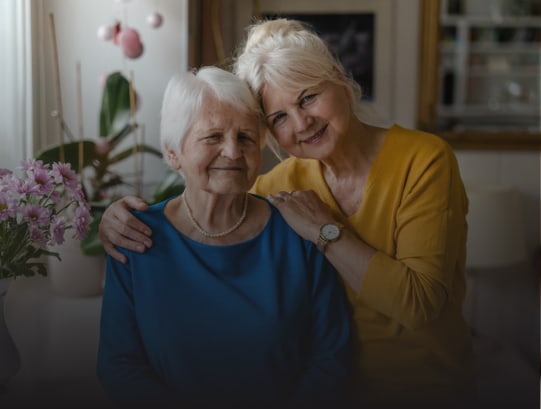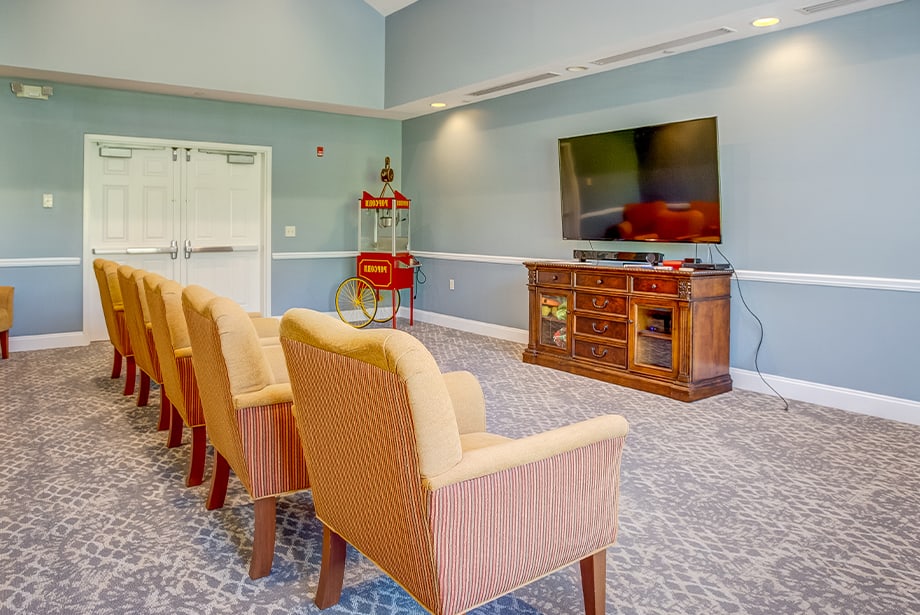Key Takeaways
- Assisted living helps seniors stay independent while receiving daily support.
- Staff provide personal care, medication help, and transportation services.
- Social activities and shared spaces foster connection and emotional well-being.
- Chef-prepared meals, safe apartments, and amenities make life comfortable.
- Families gain peace of mind knowing loved ones are cared for 24/7.
- Recognizing small signs—like skipped meals or isolation—can help families know when it’s time to consider assisted living.
How Does Assisted Living Actually Help Seniors?
It’s not always easy to know when extra help is needed. Maybe it starts with small things—missed medications, skipped meals, or mounting household chores. Over time, these daily challenges can wear on both seniors and their families. That’s where assisted living comes in.
Assisted living communities support quality of life by handling the daily tasks that give your loved one trouble. They handle time-consuming household tasks, provide personalized assistance with daily activities, and create opportunities for meaningful social connections. This way, your loved one can stay independent—without the daily challenges.
What Is Assisted Living, Exactly?
Assisted living is a senior living option that blends independence with just the right amount of support. It’s designed for people who want to stay active and engaged, but who may need a little help. When daily routines like meals, medication reminders, or getting dressed in the morning are troublesome, assisted living can help.
It’s not a medical facility or a nursing home. It’s a community where residents can enjoy life, connect with others, and get the care they need without giving up the parts of life they love. But what does it actually offer?
Help With Daily Tasks That Can Get in the Way
As parents age, tasks like preparing meals, staying on top of medications, or driving to appointments become challenging. In assisted living, these are no longer a source of stress.
Trained caregivers are available to help with personal care routines, always with dignity and respect. Medication support helps reduce the risk of missed doses or confusion. Residents also have access to scheduled transportation for shopping, appointments, and outings, so families don’t have to rearrange their week every time a trip is needed.
A Lifestyle That Prioritizes Connection
Assisted living isn’t just about care. It’s about community. Many seniors find that one of the biggest benefits of moving is the renewed sense of connection and purpose they feel in daily life.
Residents are invited to join a wide range of social activities. These include morning stretch classes, movie nights, hobby groups, music programs, and more. However, socialization isn’t limited to events. Shared meals, casual conversations in the lounge, and time spent in the courtyard all offer natural ways to stay connected with others.
Comfortable Spaces and Everyday Convenience
Life in assisted living is designed to feel easy, familiar, and enjoyable. The right environment makes a difference in residents’ lives every day.
Nutritious Dining Options
Delicious meals are prepared by chefs and served in a welcoming dining space. Menus are balanced, varied, and tailored to support senior nutrition needs. Whether it’s breakfast with friends or a quiet dinner, residents can enjoy mealtime without the stress of cooking or cleaning up.
Comfortable Homes
Apartments are designed with comfort and accessibility in mind. Residents enjoy private spaces that they can make their own. These all include safety features like grab bars, walk-in showers, and emergency response systems built in.
Convenient Amenities
On-site salons, fitness rooms, libraries, and community lounges make it easy to stay active without leaving the building. These amenities simplify routines while adding a touch of enjoyment to each day.

How to Know It’s Time for Assisted Living
Recognizing when your loved one needs more support can be difficult. Often, changes happen gradually, until one day it feels like too much to manage alone. So, how do you recognize this?
It helps to look for signs such as:
- Missed doses or confusion around medication schedules
- Difficulty with bathing, dressing, or other personal care
- Frequent falls or increased safety concerns at home
- Weight loss or poor nutrition from skipped meals
- Isolation or withdrawal from hobbies and social life
- Unpaid bills, clutter, or home maintenance issues
- Caregiver burnout or family stress from trying to “do it all”
Even one or two of these signs can be a signal that it’s time to start the conversation.
Peace of Mind for the Whole Family
One of the greatest gifts assisted living offers is peace of mind—for both residents and their loved ones. Family members no longer have to manage every meal, ride, or reminder. Instead, they can focus on visiting, connecting, and simply enjoying time together.
Staff are available around the clock, so someone is always nearby if a need arises. That constant support helps relieve the pressure many adult children feel as caregivers and restores a sense of balance to family life.
Taking the Next Step Toward Assisted Living
If you’re considering assisted living for a loved one, visiting communities in person helps you get a feel for the environment and services. There’s no substitute for seeing it in person. And here at The Enclave of Franklin, we’re ready to welcome your loved one home.
In our community, we believe in treating every resident as a unique individual. Your loved one will be valued here every day, because that’s what they deserve. Schedule a visit to our community today, and take your family’s first step towards giving your loved one a true home.










